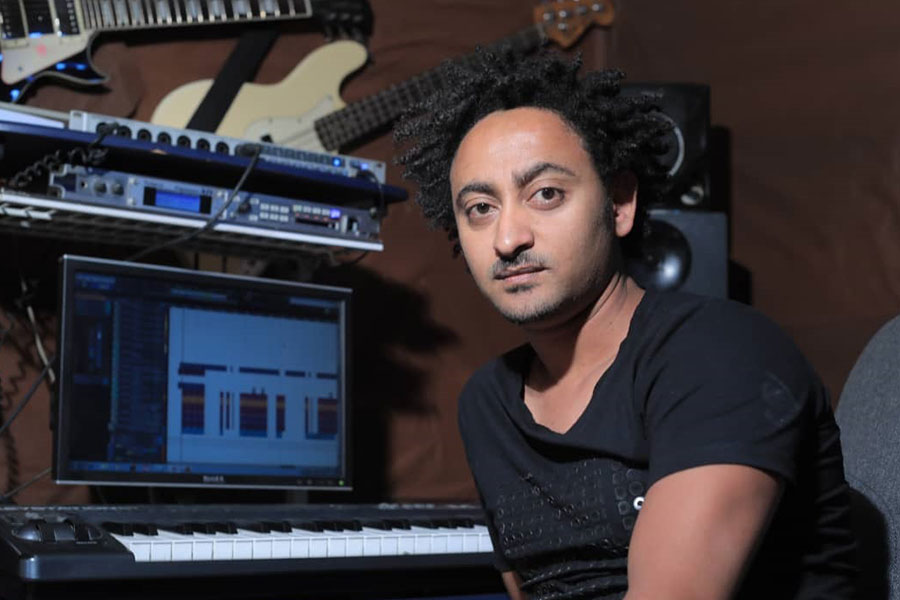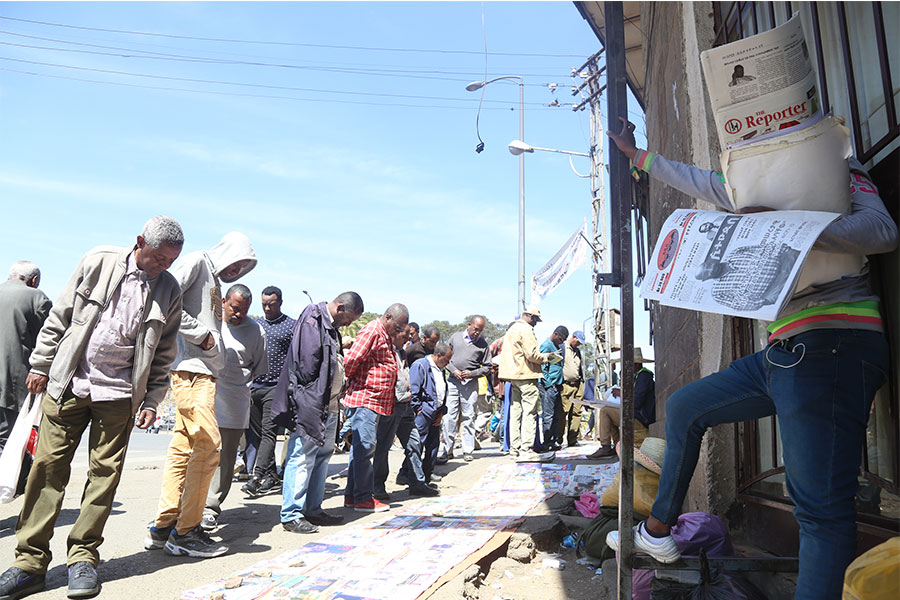
Editorial | Mar 16,2024
Ezekiel Gebissa (PhD), a political activist and professor of history at Kettering University, could not believe it when he first met Kabir Hussein seven years ago. He did not expect that the owner of Adama General Hospital could be as thin or dressed so modestly.
“But he knew me,” says Ezekiel. “We greeted and he held my hand.”
As they had coffee and talked, Kabir never let his hands go. It was a show of brotherhood and affection, one that was reciprocated. Ezekiel was fascinated by the way he ran his business, his entrepreneurial drive and how well the Hospital was handled. Most importantly, he was fascinated by the business person’s philosophy.
“He started by buying and selling, then manufacturing, then expansions and finally diversification,” explains Ezekiel. But at the end of it all, “selflessness,” “to do good,” and benefiting the community and ultimately the country was his approach.
Born in Arsi, Kabir started out as a small-time trader of grains he would buy from farmers. Having made his way to Adama, he went into the cattle fattening business and then edible oil production. Kabir’s success came in the farming industry, and he would play what he believed was a small part in the gradual mechanisation of farming in Ethiopia, especially in the Oromia Regional State.
Arsi Mechanisation, a business that provided tractors and combine harvesters to farmers, was one of his most profitable ventures.
“He is exceptionally driven. He doesn't sleep until he achieves what he has set out to do,” says Kamil Abdulkadir, a friend as well as a business partner in the early part of Kabir’s business career.
But affluence was not enough. When Kabir had amassed wealth and was standing at the top of the hill, he was able to see that he needed to give back to the community as well.
“There is no higher calling than saving lives and treating people,” says Ezekiel.
With this philosophy, Adama General Hospital & Medical College was born, opening its doors in the early 2010s. It was a passion of his and would consume a great deal of his time until his passing earlier this month at the age of 72 of illness. He even had a room to stay in at the Hospital when he was in Adama.
“It wasn't about making money for the sake of wealth,” says Ezekiel. “It was also about doing good for the people and their families.”
Kabir was not unacquainted with political circumstances, and his place as a successful business person in Oromia Regional State, which has been increasingly important to power relations within Ethiopia, was not lost on him either. He remained popular with the politically active intellectual elite that hailed from the region and advocated for the cultural and political equality of the people.
“A man for the ages, whose legacy and courageous pursuit of justice will inspire generations,” wrote Mohammed Ademo, founder of OPride.com, an online publication. "A humble, simple and generous soul, unlike anyone I have ever met."
Kabir, in turn, believed in the positive role played by activists for equality and justice. He displayed this with the special place he held for the individuals he believed played a role in standing up for the rights of the people of Oromia Regional State.
“Don’t leave this country,” he would tell Ezekiel, promising to build him a house in Assella, a town in the Arisi Zone of Oromia Regional State.
When Ezekiel was gifted a horse, a prized possession in the region’s tradition, by the town’s people, Kabir asked him not to leave with a horse alone.
“Take a wife as well,” he would plead with Ezekiel. Kabir did not believe he even needed to pay a dowry for this. “He has given enough to the people.”
The special feeling he had for the community, strict business mindedness and busy schedule did affect the amount of time he could spend with his family.
“He was a very busy man, and he spent a great deal of time in Adama,” says Eman Kabir, a medical school graduate and one of his 15 children.
Their family home was in Addis Abeba. This complicated the marriage between his private and professional life. But Kabir would often find ways to make it work. Often, they would gather at their house on a Sunday for breakfast. All of his children and their grandchildren would attend.
Kabir believed that it was crucial to inculcate a sense of self-efficiency and capability in his children. His strength of character and worldview is thus, for Eman, displayed in a comment he made in an interview he gave for a television talk show when he was talking about the Hospital and its place in the community.
“None of my children will get a penny from the Hospital,” he said. “It belongs to the public."
PUBLISHED ON
May 23,2020 [ VOL
21 , NO
1047]

Editorial | Mar 16,2024

Featured |

Radar | Apr 15,2023

Agenda | Dec 19,2018

Life Matters | Apr 02,2022

Radar | Nov 21,2020

Radar | Aug 12,2023

Radar | Feb 17,2024

My Opinion | Aug 29,2020

My Opinion | Aug 29,2020

Dec 22 , 2024 . By TIZITA SHEWAFERAW
Charged with transforming colossal state-owned enterprises into modern and competitiv...

Aug 18 , 2024 . By AKSAH ITALO
Although predictable Yonas Zerihun's job in the ride-hailing service is not immune to...

Jul 28 , 2024 . By TIZITA SHEWAFERAW
Unhabitual, perhaps too many, Samuel Gebreyohannes, 38, used to occasionally enjoy a couple of beers at breakfast. However, he recently swit...

Jul 13 , 2024 . By AKSAH ITALO
Investors who rely on tractors, trucks, and field vehicles for commuting, transporting commodities, and f...

Jul 5 , 2025
Six years ago, Ethiopia was the darling of international liberal commentators. A year...

Jun 28 , 2025
Meseret Damtie, the assertive auditor general, has never been shy about naming names...

Jun 21 , 2025
A well-worn adage says, “Budget is not destiny, but it is direction.” Examining t...

Jun 14 , 2025
Yet again, the Horn of Africa is bracing for trouble. A region already frayed by wars...